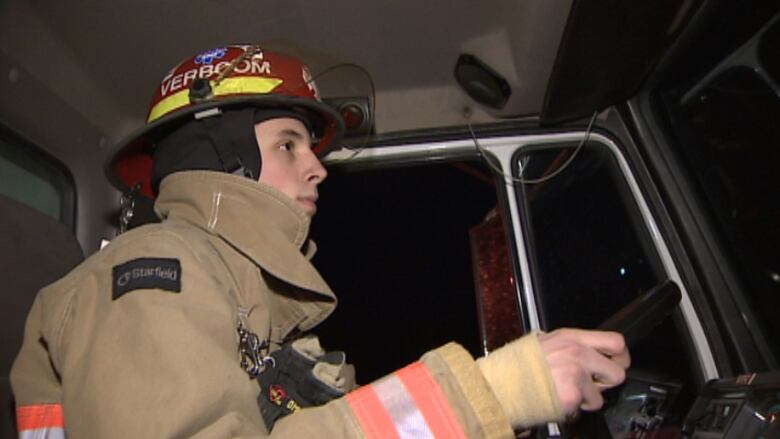'Drive-by callers' who don't share enough info with 911 a problem for firefighters
Stewiacke fire chief says his department alone gets about 10 calls a year that are wild goose chases

A fire chief in the town of Stewiacke, N.S., says arecent 911call illustrates a constant problem for emergency responders: drive-by calls from people who have seen an accident but don't know anything about it.
"After a snowfall people usually slide off the road and they don't really require assistance," Brent Murdock told the CBC'sMaritime Noon on Thursday.
"We had a call last week where we brought a fire truck, an ambulance and I think RCMP were on their way, and when we come up on the scene, the girl said, 'I didn't call you guys. I'm waiting for a tow truck.'"
The woman was "nice and warm" waiting in her car, the chief said.
Murdock said his station deals with similarlymisguided 911 calls around 10 times a year, andhe knows it's a problem with neighbouring fire departments, as well.
Get info first
The chief said it's particularly frustrating because, like most rural firefighters, they are volunteers, meaning drive-bycalls force unpaid responders to leave their jobs for no reason.
"Here in Stewiacke, we only have a few daytime responders," said Murdock.That means other departments are often called to help.
At least two vehicles need to respond to emergency calls, with one acting as a barrier to traffic at the scene.
If what happened isn't clear,the bestresponse is to pull overif it's safeand get more information from the scene before calling, he said.
Murdock also warned of another problem caused by the proliferation of cellphones: cars passing accident scenes often slow down or even stop to get a photo or videofor social media.
"I find that very, very disturbing," he said.
with files from the CBC's Maritime Noon












_(720p).jpg)


 OFFICIAL HD MUSIC VIDEO.jpg)
.jpg)



























































































